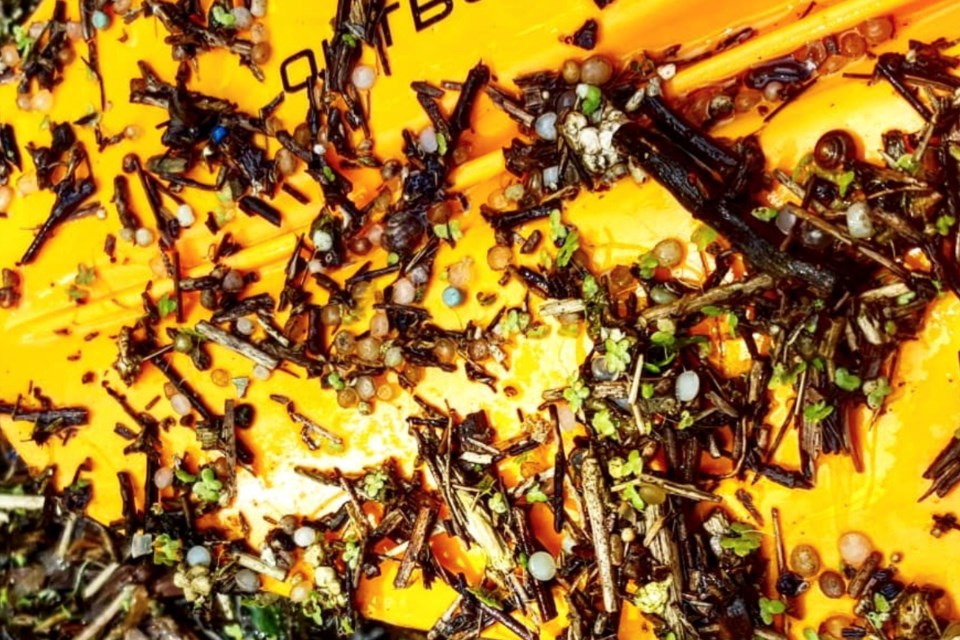Walking beside or paddling along the Eramosa River, the scene may appear to be an unspoiled wilderness, but look a little closer at some spots and you will likely see tiny resin pellets, evidence left behind after an industrial accident.
Local environmentalist Bryan McNeill found the pellets, also called nurdles, a few years ago while kayaking the river.
In 2016, McNeill pulled 35 large garbage bags full of garbage, including the nurdles, from the river over the spring and summer months. He uses a strainer to separate the tiny white orbs he finds floating in the river during his kayaking trips.
“I clean up the cans and bottles I find and as much styrofoam as I can grab,” said McNeill. “In 2016 I made a huge impact on the river.”
The nurdles were believed to have originated from Guelph's Polymer Distribution Inc. (PDI), a bulk trucking company. The nurdles reportedly spilled out of rail cars and into the river.
The nurdles are used to produce plastic products, but in the river they end up clinging to debris and can be found in many areas along the shorelines.
McNeill said the company has made efforts to clean many of the nurdles, but he is still finding them in the river this year.
“I started getting back into the river this year and there are still plastic pellets everyplace,” said McNeill.
PDI did not respond to calls for comment for this article, but a spokesperson for the Ministry of the Environment Conservation and Parks (MOE) said the company is working toward cleaning up the nurdles and is making efforts to prevent the pellets from leaving the property in the future.
The MOE's Lindsay Davidson said the there has been some recent evidence of the pellets after high water level events.
“The pellets are removed and the company records the incidents as it works to improve its current control measures,” Davidson said.
After a May 2018 MOE inspection, custom screens were installed by the company at catch basins at the points where the original spill occurred at the Elizabeth Street Facility, said the MOE spokesperson.
“The company plans to purchase and install a storm water interceptor that has proven efficient in removing pellets,” said the MOE spokesperson. “The ministry will continue to monitor the situation to ensure progress continues to be made and timelines are met.”
McNeill lauds the company’s efforts to clean up the nurdles, but he thinks everyone needs to get involved in order to remove them completely.
“I would like to see the whole city of Guelph do more and set the bar higher,” he said.
